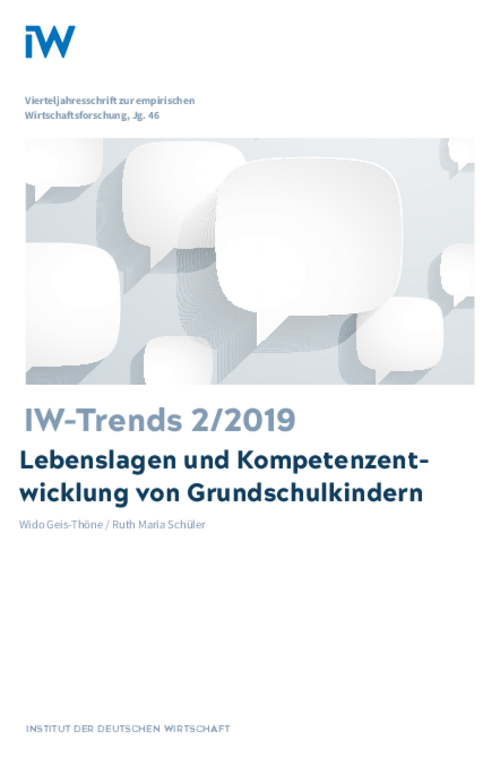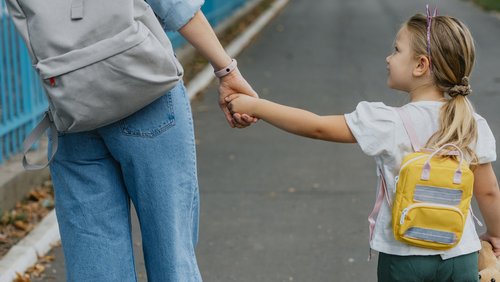How children develop is strongly influenced by the circumstances in which they grow up. However, it is not clear which factors play a role in this process. To tackle this question, the present paper looks at a broad range of indicators on family structure and the time parents spend with their children, on children’s socio-economic background and on their leisure activities.

The Living Conditions and Competence Development of Primary School Children
IW-Trends

How children develop is strongly influenced by the circumstances in which they grow up. However, it is not clear which factors play a role in this process. To tackle this question, the present paper looks at a broad range of indicators on family structure and the time parents spend with their children, on children’s socio-economic background and on their leisure activities.
Multivariate analyses are used to determine how these factors correlate with the results of competence tests in mathematics and German and teachers’ assessments of children’s social skills and concentration. The data stem from responses by and on fourth-graders to the National Education Panel Study (NEPS). The results show that sporting and musical activities correlate positively with the children's level of performance in German and mathematics. Similarly, moderate media use with up to two hours of media consumption per day is positively related to social skills and the ability to concentrate. Taking all these different aspects of children's living conditions together, it is clear that compared with leisure activities the influence of other factors, such as family structure, parental employment and migrant background, is secondary. The message for policymakers is that they should work on providing all children with leisure activities which promote their competence development. This means, on the one hand, further expanding the services offered by childcare facilities and all-day schools and, on the other, establishing counselling services aimed specifically at parents.

Wido Geis-Thöne / Ruth Maria Schüler: Lebenslagen und Kompetenzentwicklung von Grundschulkindern
IW-Trends

More on the topic

Parental contributions for childcare in a regional comparison
The federal states take very different approaches to organising parental participation in the costs of state and state-funded childcare.
IW
Teaching hours at elementary school country comparison
Young people's educational paths are very much predetermined during their primary school years. On the one hand, the basic skills of reading, writing and maths are acquired, and, on the other hand, the joint learning of all children ends with the transition to ...
IW